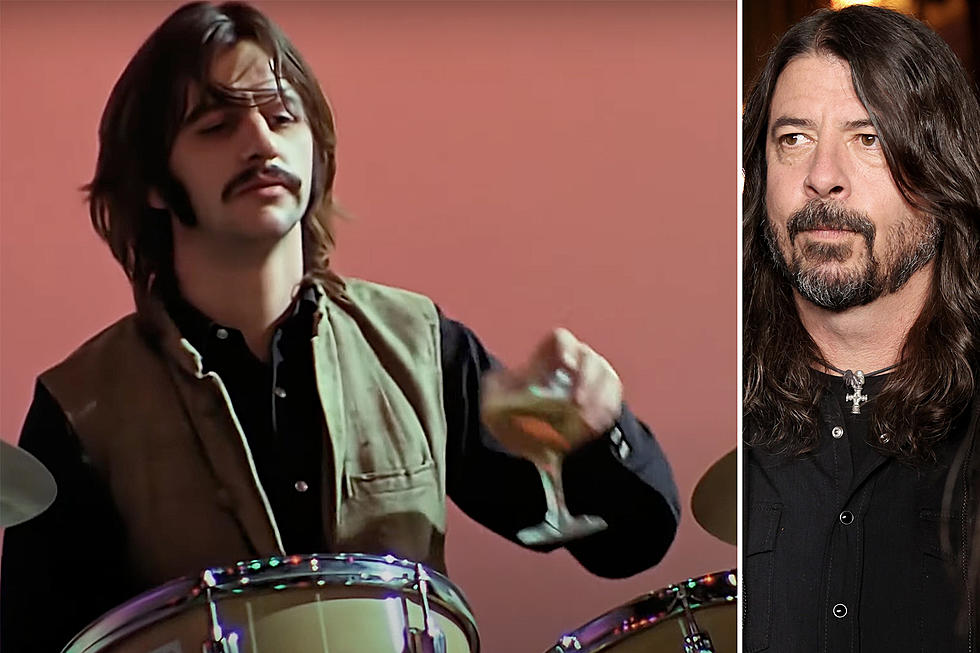
‘The Beatles (White Album) Super Deluxe': Album Review
The popular thinking goes that the Beatles were on the verge of breaking up while recording their self-titled ninth LP in 1968.
And from the sound of the double White Album, George Harrison, John Lennon, Paul McCartney and Ringo Starr were indeed going their own ways. The 30 songs often sound like solo tracks with various Beatles sitting in as sidemen with whoever was taking lead on a particular song.
That's why the six-disc The Beatles (White Album) Super Deluxe is such a revelation at times: They sound like a band working together to create one of rock's all-time greatest LPs. There are some solo excursions here -- especially on the stripped-down disc of "Esher Demos" that find the Fab Four testing out their new songs for each other -- but there's also plenty of old-school camaraderie as the group works out old songs, new songs and songs that would sit in the vaults for years.
Like 2017's anniversary edition of Sgt. Pepper's Lonely Hearts Club Band, the similarly assembled White Album reissue connects the dots from sketchy demos to finished record, revealing the shades and textures that rested in so many of the songs. The Beatles isn't as densely layered as the group's previous-year art-pop masterpiece -- it's a more organic work as a whole -- but the uncovering of elements and ideas that were tucked away or abandoned altogether make it a more rewarding set.
The remixed album is ear-opening, but it's the more than two dozen acoustic demos and 50 takes from the sessions that provide the biggest thrills here -- from the 10-minute version of "Revolution 1" that starts the sessions discs to a nearly 13-minute take of "Helter Skelter" to an early attempt at a song called "Let It Be" that wasn't picked up again until the following year.
For all of its quiet, introspective moments -- Lennon's "Julia," McCartney's "Mother Nature's Son," Harrison's "Long, Long, Long" -- the White Album takes on a harder edge with some of these outtakes, like a searing "Yer Blues" and another version of "Helter Skelter" that rivals the well-known one for blistering intensity.
And even with all the tension among the four Beatles at the time, there's still plenty of playful and loose interaction, especially as they, minus Harrison, turn the session for McCartney's "I Will" into a free-form jam that carries them from "Blue Moon" (which sounds like Elvis Presley's low-key Sun Records recording) to a TV theme song McCartney was working on to "Can You Take Me Back?," the brief interlude that bridges "Cry Baby Cry" and "Revolution 9" on the original album, in full here for the first time.
The studio sessions are like that, offering selected glimpses into how the Beatles got from here to there. Sometimes it's just an instrumental backing track to "Back in the U.S.S.R."; other times it's an early acoustic version of "While My Guitar Gently Weeps" that's just a little less majestic than the one you know. And occasionally there's something jaw-droppingly awesome like that 10-minute "Revolution 1" that reveals sections that eventually found their way into "Revolution 9"'s audio collage.
So in that sense, the 27 "Esher Demos" included here are both the springboard to this set and its centerpiece, even as they reinforce the notion that the four Beatles were moving their separate ways. Early, skeletal versions of songs like "Ob-La-Di, Ob-La-Da" and "Happiness Is a Warm Gun" got big boosts in the studio when the entire band chipped in, but they're still fascinating and tuneful as acoustic pieces.
Even the ones that didn't make it onto the White Album -- Harrison's "Sour Milk Sea" was passed on to an Apple Records singer, McCartney's "Junk" ended up on his first solo LP and Lennon's "Child of Nature" turned into "Jealous Guy" three years later -- show just how prolific the writers still were five years after their debut record put them on a nonstop cycle of releases.
But these early demos don't mean as much without the finished record. Half a century later, the White Album remains one of the Beatles' greatest, influential and definitive works. You'll appreciate it even more after hearing this Super Deluxe box, which chronicles the LP's inception while furthering its case for such an esteemed place in music history. After all these years, it doesn't sound like the end, but rather a new beginning.
Ranking Every Beatles Album
More From US 103.1 FM










